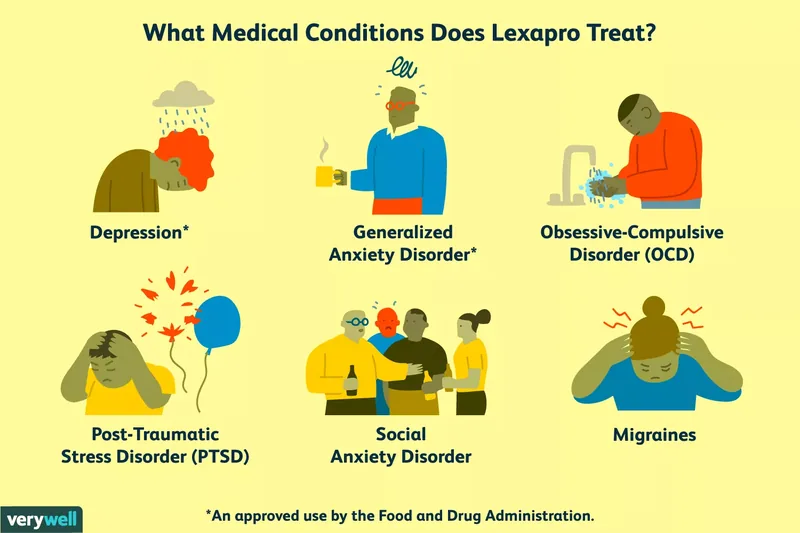7 Proven Ways to Create More Meaning and Purpose
Looking for more meaning and purpose but tired of vague advice? You’re not alone—and you’re not behind. The fastest path to a more meaningful life is to align your everyday actions with what truly matters to you: the people you impact, the problems you care about, and the abilities you already have. This guide shows you 7 practical, science-informed strategies to do exactly that—without needing a complete life reset.
When your days reflect your values, you stop asking if your life has meaning—and start feeling it.
Why Meaning and Purpose Matter Right Now
Purpose is not a luxury concept reserved for people who "have it all figured out." It is a psychological basic: a clear sense that your life, relationships, and efforts add up to something that matters.
Recent well-being research shows that people with a strong sense of purpose tend to experience:
- Better emotional regulation and resilience under stress
- Healthier lifestyle choices and stronger social ties
- More consistent motivation and follow-through on goals
A higher sense of purpose is linked with healthier aging and longer life, partly through better brain and cardiovascular health (Harvard, 2024; Stanford researchers).
The good news: you don’t have to wait for a dramatic calling.
Most people don’t "find" a purpose once—they build it, choice by choice, habit by habit.
How to Know What Gives Your Life Meaning
Before you dive into strategies, define what "more meaning purpose" looks like for you in this season of life.
Ask yourself:
- When do I feel most like myself?
- Who or what do I feel responsible to?
- Which problems in the world or in my community genuinely bother me?
Look for places where your answers overlap: your values, your strengths, and a need outside yourself.
That intersection is where purpose stops being abstract and starts becoming a roadmap.
7 Essential Ways to Create More Meaning and Purpose
Below are seven proven, realistic ways to design more meaning into your daily life. Each includes: what it is, a modern example, and one small Routinova-style tip you can act on this week.
1. Turn Helping Others Into a Weekly Habit
Living with purpose almost always involves shifting from "What can I get?" to "How can I contribute?" Consistently helping others—even in small ways—signals to your brain that your presence matters.
Modern example:
- Mentor one junior colleague on video once a month.
- Join a local food rescue, mutual aid group, or online tutoring initiative.
- Offer a specific skill (design, translation, coding, childcare) to a community you care about.
People who regularly give time or support to others report higher life meaning and stronger well-being compared to those who don’t—independent of income or status.
Routinova tip:
-
Block 30 minutes every week in your calendar titled: "Micro-Act of Service."
Use it to check in on someone, review a resume, or volunteer for a small task that helps a cause.
2. Use Feedback as a Purpose Compass
We often overlook our most meaningful strengths because they feel "normal" to us.
Others can see what lights us up long before we do.
How to use it:
- Ask 5 people: "What do you count on me for?" or "When do you see me most energized?"
- Screenshot or write down compliments and recurring themes.
New example:
- If people say, "You’re the calm one in a crisis," you might explore roles in coaching, crisis support, operations, or healthcare.
- If they say, "You make complex things simple," your purpose might involve teaching, writing, or product design.
Routinova tip:
-
Create a "Purpose Clues" note on your phone.
Whenever feedback resonates, add it.
Review monthly to spot patterns that point to more meaning and purpose.
3. Curate a Purpose-Positive Inner Circle
Your environment can quietly sabotage or supercharge your sense of direction.
Spending most of your time with people who complain, numb out, or mock ambition can dull your motivation.
Instead, seek out people who:
- Take responsibility for their lives
- Care about something beyond themselves
- Encourage growth, rest, and boundaries (not burnout as a badge)
New example:
- Join a local climate action meetup, a faith or values-based group, or a creator community where members share goals and progress instead of just content.
Routinova tip:
-
Do a "social audit": list your top 10 regular contacts.
Add a "+" if you feel inspired after talking to them, a "-" if you feel drained.
Intentionally add one more "+" interaction and reduce one "-" each week.
4. Start Better Conversations With New People
New perspectives expose you to paths, causes, and stories you didn’t know existed. This is essential if you feel stuck in routine or unsure what could bring your life deeper meaning.
How to try it (online or offline):
- Ask people, "What are you excited about working on this year?"
- Ask, "If you had one extra hour a day, what would you dedicate it to?"
- Attend one event a month (virtual or in-person) outside your usual niche.
Short featured answer (for quick scan readers):
To discover more meaning and purpose, talk to people outside your usual circle. Ask about the projects, causes, and ideas they care about. Their stories can reveal options and values that resonate with you and help you see new ways your strengths could matter.
Routinova tip:
-
Set a micro-goal: one intentional conversation per week with someone new or less familiar.
Keep one takeaway from each chat in your "Purpose Clues" note.
5. Follow the Topics You Can’t Stop Thinking About
Your digital and real-life behavior already reveals what you care about.
Pay attention.
Check:
- What topics dominate your saved posts or watch history?
- Which issues or ideas make you want to learn more instead of scroll away?
- What were your childhood fascinations—and which ones survived into adulthood?
New example:
- If you constantly consume content on mental health, you might explore peer support, advocacy, or designing psychologically safer workplaces.
- If you love sustainable design videos, you could volunteer skills to eco-startups or community projects.
Routinova tip:
-
Choose one recurring interest and give it 25 focused minutes this week: read a serious article, take a mini-course, or map problems in that space.
Ask: "Where could I contribute, even 1%, here?"
6. Notice the Injustices You Can’t Ignore
Anger, heartbreak, or discomfort are powerful signals.
Often, where you feel "This is not okay" lies a road to more meaning and purpose.
Reflect:
- Which headlines feel personal, not distant?
- Which groups do you instinctively want to protect or support?
- Which stories stay in your mind days later?
Examples:
- Supporting underrepresented founders, protecting local ecosystems, improving accessibility, or advocating for safer schools.
You don’t need to quit your job. You can:
- Donate skills instead of only money
- Support organizations with consistent micro-actions
- Use your current role to improve fairness, inclusion, or sustainability
Routinova tip:
-
Choose one issue and define a "tiny stance": one recurring action (monthly donation, quarterly volunteering, regular signal-boosting, workplace advocacy).
Consistency builds identity—and identity fuels purpose.
7. Design Your Life Around What You Love Doing Well
Meaning isn’t only in sacrifice; it’s also in joyful competence.
The things you love—and do well—can become vehicles for impact.
Ask:
- What activities make you lose track of time in a good way?
- Which skills feel natural to you but hard for others?
- Where do passion and usefulness overlap?
Examples:
- If you love organizing, help community groups run smoother events.
- If storytelling is your strength, share under-heard voices.
- If you’re into data, support nonprofits or local governments in making better decisions.
Purpose grows when you aim your strengths at something that outlives your to-do list.
Routinova tip:
-
Write a 1-sentence "purpose draft":
-
"I use my [top skill] to help [specific people/cause] [specific outcome]."
Treat it as a living hypothesis, not a life sentence.
-
"I use my [top skill] to help [specific people/cause] [specific outcome]."
Quick Implementation Guide: Start in 7 Days
Here’s a simple, mobile-friendly roadmap to start integrating more meaning and purpose without overwhelm.
Day 1:
- Write down your 3 core values.
- Draft one sentence describing the kind of person you want to be this year.
Day 2:
- Ask one person what they most appreciate or rely on you for.
- Add it to your "Purpose Clues" note.
Day 3:
- Choose one cause or topic that moves you.
- Follow one credible organization or expert working on it.
Day 4:
- Perform one intentional act of service (message, favor, support, intro).
- Notice how you feel afterward.
Day 5:
- Audit your social circle: add one "expansive" conversation; reduce one draining interaction.
Day 6:
- Write your current purpose draft: "I use X to help Y do Z."
- It’s okay if it feels rough.
Day 7:
- Choose one weekly habit (15–30 minutes) that aligns with that draft.
- Put it on your calendar as a non-negotiable experiment.
Common Pitfalls to Avoid on This Journey
Steer clear of these traps that quietly block more meaning and purpose:
- Waiting for a lightning-bolt calling instead of running small experiments
- Believing purpose must be your job title (it can live in how you do any role)
- Comparing your path to content creators or influencers online
- Overcommitting to every cause and burning out
- Ignoring rest, which is essential for clarity and sustained impact
Featured snippet-style reminder:
You don’t need a perfect plan to live with purpose. Start small, act where you are, and refine based on what feels meaningful, energizing, and helpful to others.
Next Steps: Designing a Purpose-Driven Routine
Purpose isn’t a one-time discovery; it’s a practice. To keep building more meaning and purpose into your life:
-
Review monthly:
- What felt meaningful?
- What drained me?
- Where did I actually help someone or move something forward?
-
Adjust:
- Keep what aligns with your values and strengths.
- Drop what is only obligation or image.
-
Expand:
- Gradually increase time spent on purposeful activities by 10–15%.
Consider this simple ongoing check-in:
- "Does this choice bring me closer to or further from the person I want to be?"
If it’s closer more often than not, you’re already living with greater purpose—whether or not you’ve named it perfectly.
And remember:
When your daily actions match what you care about, you don’t chase meaning. You create it.
Start with one tiny step today.
Your future self will recognize it as the moment things began to make sense.











